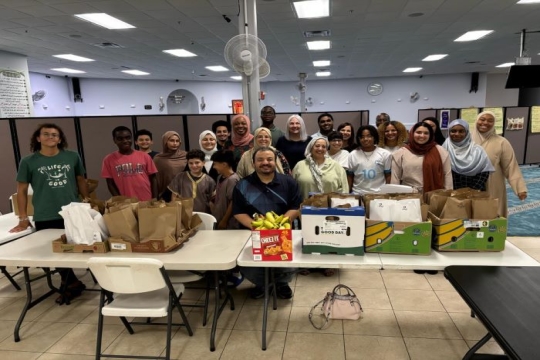
This moment requires a strong moral voice.
The Union for Reform Judaism and Central Conference of American Rabbis have undergone a process with our respective leadership, listened to experts, worked closely with our beloved Israeli Movement, our partners at the Israel Movement for Reform & Progressive Judaism (IMPJ) and the Israel Religious Action Center (IRAC), and consulted with leaders across North America.
As a Movement that puts Ahavat Yisrael as one of its highest values and with our deep commitment to Israel as both a Jewish and democratic state, we must strongly oppose the potential annexation after July 1st. We must do so out of a concern for Israel’s safety and security, for the preservation of Israel’s democratic character, and for the place of Israel among the nations of the world.
- Write to Congress. Use our easy action alert tool to urge your elected officials to oppose annexation of West Bank territory.
- Read and share our policy resolution. In June 2020, the URJ and CCAR adopted this "Resolution Urging the Israeli Government Not to Carry Out Unilateral West Bank Annexation."
- Learn more. See the following resources for background purposes that can be helpful in understanding the complexity of the annexation issue.
- URJ/Israel Policy Forum (IPF) Webinar on Annexation: Watch a recording of this webinar with Dr. Shira Efron, Dr. Michael Koplow, and Rabbi Josh Weinberg:
- "Annexation of the West Bank: Where Does it Lead? | Insights from a conference held at the Institute for National Security Studies (INSS)": The INSS is one of the most respected institutions for a wide spectrum of scholars. In this analysis, they make the arguments both for and against annexation.
- Fact Sheet on West Bank Annexation: This fact sheet comes from the Israel Policy Forum as part of their more in depth analysis of annexation. Also see their April 2020 Unilaterial Annexation document.
- "A plea to Gantz, Ashkenazi: Israel and its friends need you to block annexation": This op-ed was written by Yossi Klein Halevi for The Times of Israel.
We thank you for your support and for taking action at this critical moment. We look forward to continuing our work as a Movement in support of Israel and in championing the values we hold dear.
Related Posts

Marking this Moment: Resources for the Release of the Hostages

I’m a Rabbi. Here is Why my Faith Tells Me the War in Gaza Must End.


